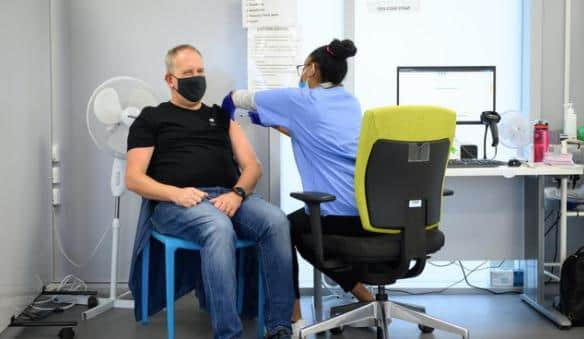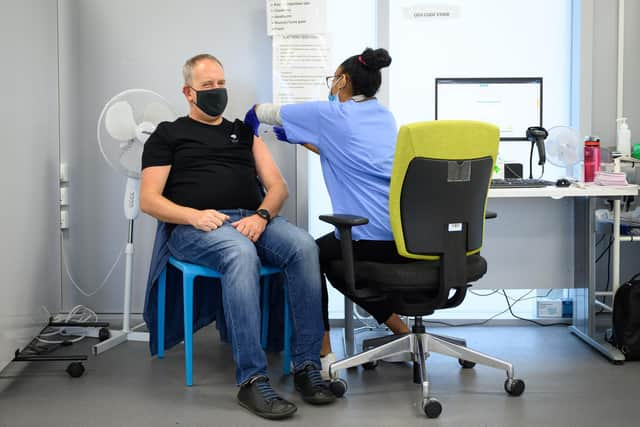Omicron: Booster vaccines may be effective against new Covid variant, experts say
A major study into six booster vaccines found they all increased immunity against current strains of the virus, while mRNA jags – those currently used in the UK – gave the most significant protection.
Scientists have hailed the CovBoost study as “great news” as the UK grapples with a new variant.
Advertisement
Hide AdAdvertisement
Hide AdResults of the study, published in the Lancet, were sent to the Joint Committee on Vaccination and Immunisation (JCVI) to inform its advice on booster jags.


While the study was done before Omicron appeared, samples have now been sent to the UK Health Security Agency (UKHSA) for research into how boosters affect the new variant.
But given their efficacy against Alpha and Delta, scientists said they were “hopeful” boosters would reduce hospitalisations and deaths caused by Omicron.
“Our hope, as scientists, is that protection against hospitalisation and death will remain intact,” said Professor Saul Faust, study lead and director of the NIHR Clinical Research Facility at University Hospital Southampton NHS Foundation Trust.
Jonathan Ball, professor of molecular virology at Nottingham University, labelled the study “fantastic”.


He said: “The fact that the mRNA vaccine boosts gave a marked increase in both antibodies and T cells is great news, especially now, when our attention has been grabbed by the emergence of the Omicron variant.
"We still don’t know how this increase in immunity translates into protection, especially against serious disease, but I am still convinced that our vaccines will continue to provide the protection that we need.”
Eleanor Riley, professor of immunology and infectious disease at Edinburgh University, said she expects to see data in the next week or so around boosters and Omicron.
Advertisement
Hide AdAdvertisement
Hide Ad“The good news is that whether you had AZ [AstraZeneca] or Pfizer as your first two doses and whether you have Pfizer or Moderna as your booster, there is a marked increase in both your neutralising antibody concentration – on average a more than 20-fold increase – and your T cell response – on average an approximately three-fold boost – against both the original Wuhan virus and against the Delta variant,” she said.
The study looked at vaccines made by Pfizer, Moderna, AstraZeneca, Novavax, Janssen, Valneva and CureVac, which has since ceased production.
Some 2,878 people aged 30 or over were given a booster ten to 12 weeks after their second dose.
Immunity was then measured after 28 days. Ongoing research will examine this after three months and one year.
Results showed the greatest effect from the mRNA vaccines Pfizer and Moderna, but also a “very effective” boost from AstraZeneca, Novavax and Janssen.
This shows the booster campaign has a “broad choice” of options, Prof Faust said.
The study authors were asked to help UKHSA with research on Omicron “very, very shortly” after it appeared, said Professor Matthew Snape, chair of the National Vaccine Evaluation Consortium (NISEC), and associate professor in vaccinology at Oxford University.
“What we're interested in with the variants of concern is their ability to neutralise the virus in the test tube through antibodies, and that's what we'll be waiting for,” he said.
Advertisement
Hide AdAdvertisement
Hide Ad“I think we will start to see those results in a few weeks. Many people around the world are clearly looking at this.”
A message from the Editor:
Thank you for reading this article. We're more reliant on your support than ever as the shift in consumer habits brought about by coronavirus impacts our advertisers.
If you haven't already, please consider supporting our trusted, fact-checked journalism by taking out a digital subscription.
Comments
Want to join the conversation? Please or to comment on this article.
